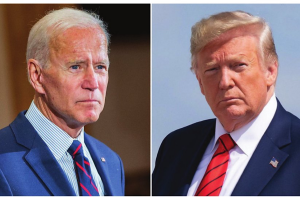In the political arena, alliances are often forged in unexpected ways, and the recent announcement by US House Democrats to back Republican Speaker Mike Johnson is a testament to the fluidity of power dynamics in Washington. While such a move may raise eyebrows and prompt speculation, it underscores the pragmatic approach taken by lawmakers when faced with the prospect of internal discord.
The genesis of this alliance lies in Johnson’s decision to champion aid for Ukraine, a move that drew ire from some within his own party. In a landscape increasingly polarised along partisan lines, Mr Johnson’s willingness to prioritise national security over partisan politics is commendable. It demonstrates a commitment to governance beyond ideological constraints ~ a rarity in today’s hyper-partisan climate. However, the Democrats’ decision to support Mr Johnson is not solely motivated by altruism. It is a strategic calculation aimed at preserving stability within the House of Representatives.
The spectre of former Republican Speaker Kevin McCarthy’s ousting still looms large, serving as a cautionary tale for both parties. By throwing their weight behind Mr Johnson, Democrats are effectively pre-empting any attempt by Republicans to destabilise the speakership ~ a move that could have farreaching consequences for legislative productivity and public perception. Yet, this alliance is not without its detractors. Critics argue that Democrats are compromising their principles by aligning with a figure whose political allegiance lies with the opposing party. They decry what they perceive as a betrayal of party values in pursuit of political expediency.
However, such criticism overlooks the nuanced nature of political manoeuvring and the imperative of pragmatism in a divided government. Moreover, Mr Johnson’s leadership style has been subject to scrutiny from within his own party. His reliance on Democratic votes to advance key legislative priorities has irked hardline conservatives, who view such cooperation as anathema to Republican party principles. However, this criticism fails to acknowledge the reality of governing in a divided Congress, where coalition-building is essential for advancing legislative agendas. At its core, the Democrats’ decision to support Mr Johnson reflects a recognition of the need for bipartisanship in addressing pressing national issues.
In an era marked by gridlock and acrimony, pragmatic cooperation between opposing factions is essential for effective governance. By prioritising stability and collaboration over partisanship, lawmakers can fulfil their duty to the American people and uphold the integrity of democratic institutions. The alliance between House Democrats and Speaker Johnson may seem unconventional, but it embodies the pragmatic spirit of governance in a polarised political landscape. While critics may decry it as a capitulation of principles, it represents a necessary compromise in the pursuit of stability and effective leadership. Ultimately, the success of this alliance will depend on the ability of lawmakers to transcend partisan divisions and work together in the best interests of their country











